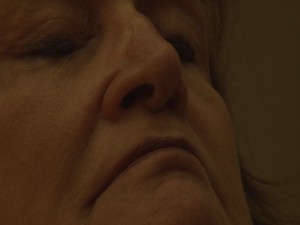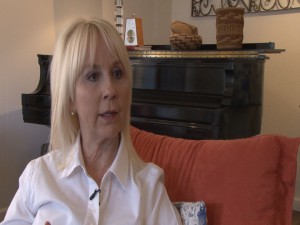
Bernie Sanders. (photo: Karen Bleier/Getty Images)
 aying
that “our job is to revitalize American democracy,” U.S. Sen. Bernie
Sanders on Thursday challenged the Democratic Party establishment to
decide if it will fight for working families or do the bidding of Wall
Street, big oil, the pharmaceutical industry and other special
interests.
aying
that “our job is to revitalize American democracy,” U.S. Sen. Bernie
Sanders on Thursday challenged the Democratic Party establishment to
decide if it will fight for working families or do the bidding of Wall
Street, big oil, the pharmaceutical industry and other special
interests.“Are we on the side of working people or big-money interests? Do we stand with the elderly, the sick and the poor or do we stand with Wall Street speculators and the insurance companies?” the Democratic Party presidential candidate asked 8,300 supporters at an outdoor rally at Island Park.
He said a key reason why 63 percent of voters did not go to the polls in the last election and nearly 80 percent of young and low-income people stayed home is that “the Democratic Party, up until now, has not been clear on which side they are on on the major issues facing this country.”
On issue after issue, Sanders challenged the Democratic Party to pick sides. “You can’t be for Wall Street and the working people of this country. You cannot be for the drug companies and senior citizens and veterans,” he said. “You cannot be on the side of workers and support those corporations that have thrown millions on the street.”
The failure of Democratic leadership to send a clear message on where the party stands is why Republicans have grabbed control Congress and Statehouses. “The problem in my view is not that the Republicans are winning elections. It’s that Democrats are losing elections,” he said.
Sanders also faulted Democrats for not pushing election reforms that would increase voter turnout and help Democrats win elections. For example, he said, Democrats should get behind legislation he introduced in the Senate to register everyone to vote when they turn 18 years old. “The Democratic Party has got to be very clear. We need automatic voter registration.” In 2015, Oregon became the first state in the nation to require state agencies to automatically register voters when they get a new driver’s license or identification card.
He also called on Democrats in states where access to the voting booth is restricted in primary contests to open the process and let millions of independents participate, “Republican governors want to make it harder to vote. Our job is to bring more people into the system. We need open primaries.”
Sanders also spelled out differences with Hillary Clinton. On trade policy, he opposed and she backed most of the job-killing trade deals. On climate change, he challenged Clinton to support a carbon tax to discourage burning the fossil fuels that are warming the planet. He pressed her to support a nationwide ban on fracking that imperils safety of drinking water and encourages fossil fuel. He asked Clinton to join him in supporting a Medicare-for-all health care system and to crack down on pharmaceutical companies that charge Americans the highest prices for prescription medicine anywhere in the world.
“Secretary Clinton may not believe the American people have the ability to take on the insurance companies and take on the drug companies. I disagree.”
Sanders also cited his big leads over Republican White House hopefuls Donald Trump, U.S. Sen. Ted Cruz and Ohio Gov. John Kasich. Sanders beats Trump by twice as big a margin as Clinton. He also holds leads over Cruz and Kasich. She holds a narrow edge over the Texas senator and loses in many polls to the Ohio governor.
“I hope delegates to the Democratic National Convention take heed of this,” Sanders said at the rally.
Sanders, who launched his campaign one year ago as an underdog, has so far won 17 primaries and caucuses and amassed 1,350 delegates to this summer’s Democratic National Convention. He has set fundraising records with 7.3 million donations. And he is drawing the biggest crowds for any presidential candidate.
“I think Secretary Clinton and I agree that we must not have a Republican in the White House but I think the evidence is overwhelming that you are looking at the strongest Democratic candidate,” Sanders said. “And the reason for that is that our campaign is able to reach beyond the Democratic base and win the support of millions of independents.
“This is the campaign that is generating excitement and enthusiasm and a large voter turnout."
Oregon is among 14 states, territories and the District of Columbia which have yet to vote in the contest between Sanders and Hillary Clinton. He thanked U.S. Sen. Jeff Merkley of Oregon for being the only member of the United States Senate “to have the guts” to back Sanders.











 he
decision to remove Andrew Jackson from the $20 bill is long overdue. So
is the movement to remove the name of Lord Jeffery Amherst from that
college town in western Massachusetts.
he
decision to remove Andrew Jackson from the $20 bill is long overdue. So
is the movement to remove the name of Lord Jeffery Amherst from that
college town in western Massachusetts.

 harles
and David Koch, the billionaire industrialists who have spent decades
acquiring a world-class collection of Republicans, revealed over the
weekend that they are considering purchasing their first Democrat.
harles
and David Koch, the billionaire industrialists who have spent decades
acquiring a world-class collection of Republicans, revealed over the
weekend that they are considering purchasing their first Democrat.




